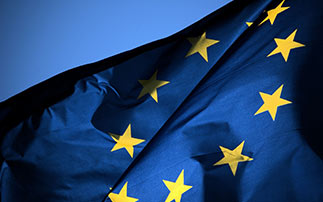The European Neighbourhood Policy (ENP), launched in 2003, governs the EU’s relations with 16 of the European Union’s (EU) closest Eastern and Southern Neighbours. To the South: Algeria, Egypt, Israel, Jordan, Lebanon, Libya, Morocco, Palestine, Syria, Tunisia and to the East: Armenia, Azerbaijan, Belarus, Georgia, Moldova and Ukraine.
Through ENP, the EU works with its Neighbours to foster stabilisation and security. The EU provides its support mainly through the European Neighbourhood Instrument (ENI), with over 15 billion euro for 2014-2020.
The new joint report (18 May 2017) by the European Commission and the High Representative on the implementation of the ENP review confirms the ENP’s central role in creating the conditions for the stabilisation of the EU’s neighbourhood, which the review identified as a top priority. The Joint report adopted today is the first neighbourhood-wide report that is published by the EU as a standalone document, without a set of individual country reports. The aim of this new report style is to provide a broad overview on developments in the neighbourhood. Country-specific reports are now adopted and published separately.
The review refocused the ENP to ensure a differentiated approach to partners, recognising the different aspirations of each country, jointownership, based on both partners’ needs and EU interests, and more flexibility in the use of EU instruments. The new approach has been crucial in reenergising the EU’s relations with the ENP partner countries, including through the negotiation and adoption of new Partnership Priorities and the ongoing updating of Association Agendas, in each case sharpening the focus of relations for the next few years on areas of agreed mutual interest.
Within the new political framework, the EU is acting with more flexibility and sensitivity towards its partners, deploying its resources with more impact as regards the implementation of the key priorities. Flexibility in the use of EU funding (through the ENI), has been increased through the use of Trust Funds to ensure a rapid delivery of financial assistance, through greater use of blending and of improved joint programming with Member States.
The reviewed ENP has mobilised significant support to reforms in four priority areas: good governance, democracy, rule of law and human rights; economic development for stabilisation; security; migration and mobility.
The ENP review significantly increased the policy’s focus on security issues, with a comprehensive approach to the security challenges in its neighbourhood. The EU has developed Security Sector Reform programmes both in the East and South, and taken forward important work on counter-terrorism and preventing violent extremism, while strengthening efforts on disrupting organised crime and on enhanced cooperation in the area of Common Security and Defence Policy (CSDP).




